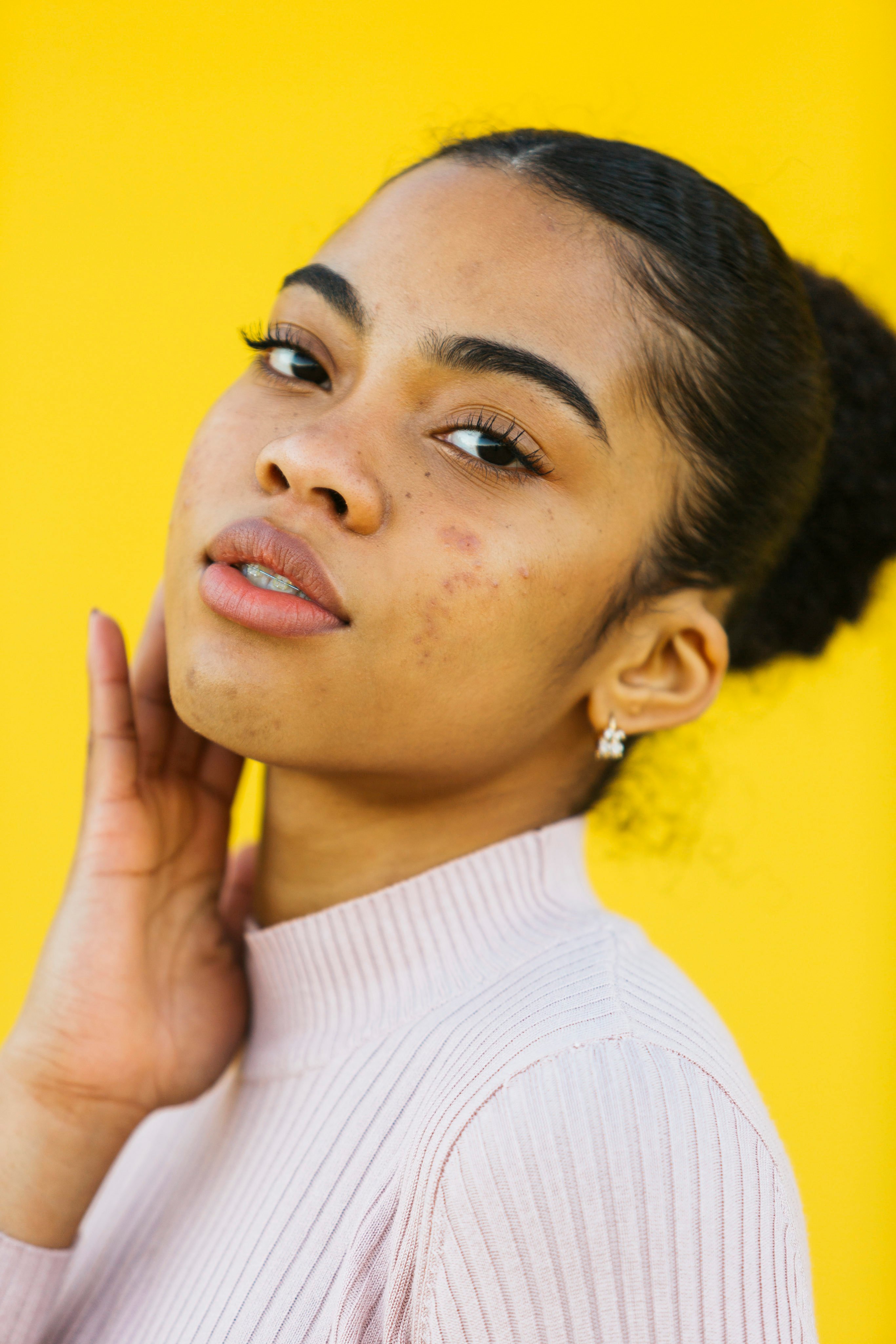Change is afoot in the skincare industry.
Nothing lives in my head rent free quite like a Proactiv infomercial.
In the early 2000s, the brand’s ads would play during American Idol commercial breaks, and despite being a kid with no first-hand knowledge of acne (yet), I was convinced Proactiv was the It Brand for any and all skin woes.
For years, Proactiv’s celebrity-fronted advertisements featured success stories where people shared testimonials about the shame they felt before the company’s products “fixed” their skin. This approach earned the brand criticism, and it was most notably slammed in 2019 when Kendall Jenner signed on as its newest face, with many accusing the campaign of lacking authenticity.
Across all its ads, though, Proactiv’s messaging was clear: good skin is skin without any blemishes, texture or scarring.
But since the days of those cable TV infomercials, there’s been a drastic change in the way we talk about skin. The rise of the body positivity movement has brought forth a push for acne acceptance. Because of this, Proactiv — once a powerhouse in the world of skincare — is now rebranding.
In November 2021, it was announced that Proactiv would be changing its name to Alchemee. And on January 19, Business of Fashion reported on the company’s plans to launch two new product lines this year that eschew the Proactiv name and acne focus.
Proactiv’s rebrand is a response to a larger change in the beauty industry. Today, skincare products are increasingly about normalizing acne.
Acne acceptance on has been gaining traction for years on social media. And over time, messages of self-acceptance have taken precedence over shame surrounding appearance, thanks in large part to skin-positivity influencers — or skinfluencers — who have been transparent about what real skin looks like.
Creators like Constanza Concha, Jeyźa Kaelani and Em Ford are a few leading the skin positivity movement. Other artists on social media, like photographer Peter DeVito, have undertaken projects to showcase the beauty of different skin types through their work.
Thanks to this content and others like it, the beauty industry is following suit.
Skincare products have evolved from trying to conceal pimples to practically celebrating them. Take Gen Z-favourite skincare brand Starface. Founded in 2019, the inclusive company is known for making bright, flashy face stickers that accessorize blemishes instead of hiding them.
Other brands like Squish Beauty and Bad Habit embrace imperfections and different skin types in their brand ethos. Bad Habit’s manifesto reads, in part: “Rather than chasing some unreal projection of perfection, we want to help you find balance in your realness.” Sorry, but 2006 Proactiv could never.
Social media has opened up the conversation between brands and consumers, and made way for a new era of acne positivity.
From being a top-selling skincare brand to ditching its name and core messaging, Proactiv’s move proves the industry is changing. Brands that were once successful in making us feel bad about ourselves by peddling the idea that we should aspire to have perfect skin can no longer do so because “perfect skin” doesn’t exist. I wish I could tell my younger self that.
